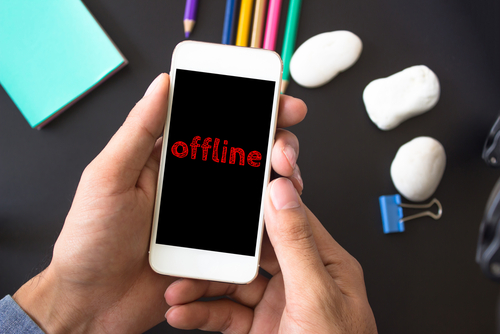
Most residential inpatient programs do not allow their clients to have their cell phones or computers with them. There may be limited hours in the day in which they can access email and Facebook in order to keep up with friends and family. Generally, social media is seen as a distraction and a potential deterrent to treatment. The world of social media offers everything one could possibly be interested. Millions of groups, pages, and individuals can open up one’s world to universes beyond their own. Social media also acts as a storage space for the past. What one might have posted when they were drunk, high, blacked out, in a manic episode, in a depressive episode, or during any other time of poor mental health is there waiting. Pages full of harmful thoughts, triggering photos, people who won’t be part of life anymore, are there waiting after treatment. Thankfully, nothing in social media is perfect. Through recovery, many tools and techniques are taught for “cleaning up” life and organizing the priorities of mind, body, and spirit around recovery. Homes are cleared out of drugs and alcohol or tools for self-harm. Closets are cleared out of clothes which are triggering of difficult times. Bookshelves are filled with inspiration. After treatment, there is a period of “cleaning” out the old life of pain and suffering while building a new life of peace and serenity. Here are some tips for performing a recovery spring cleaning on social media and making social media work for recovery.
Don’t Log Back In
Though it may seem the opposite, social media isn’t actually a requirement for being a living, breathing, functioning human being on planet earth. That being said, there is nothing forcing a return to social media. If going back to being connected feels overwhelming, or just uninteresting, don’t log back in. To prevent future logins, have a trusted friend change the passwords.
A Mass Exit: Unfollow and Unfriend
If logging back in is the decision, start by cleaning up who and what appears in a news feed. Edit groups, pages, and individuals which are in the lists of what is being followed. Remove anything triggering, anyone triggering, and any content which feels like it might be a good idea on a bad day. Next, turn to the list of friends and decide who truly needs access to the details of a personal life. The smaller old social media life becomes, the more opportunities there are to grow a new one.
Be An Advocate
Coming across old pages which are triggering or promote triggering behaviors often means that there a remote people who might have trouble with that profile’s content. Send a report to the social media platform explaining why it can be harmful for mental health.
Follow Recovery
Recovery is everywhere on social media, waiting to be found. Add new recovery peers as friends, join groups for recovery support, and find new interest in new inspirations.
Minimize Use
Social media does not have to be an all day engagement. Limit social media use to one hour per day. Turning to social media to numb out, escape, or avoid, makes it a tool against mental health, not for it.
Recovery will bring you a life of peace and serenity beyond your imagination. If you are a loved one are in need of residential treatment for mental health and/or substance use disorders, call Avalon By The Sea today for a confidential assessment and information on our primary care facilities. 888-958-7511.










